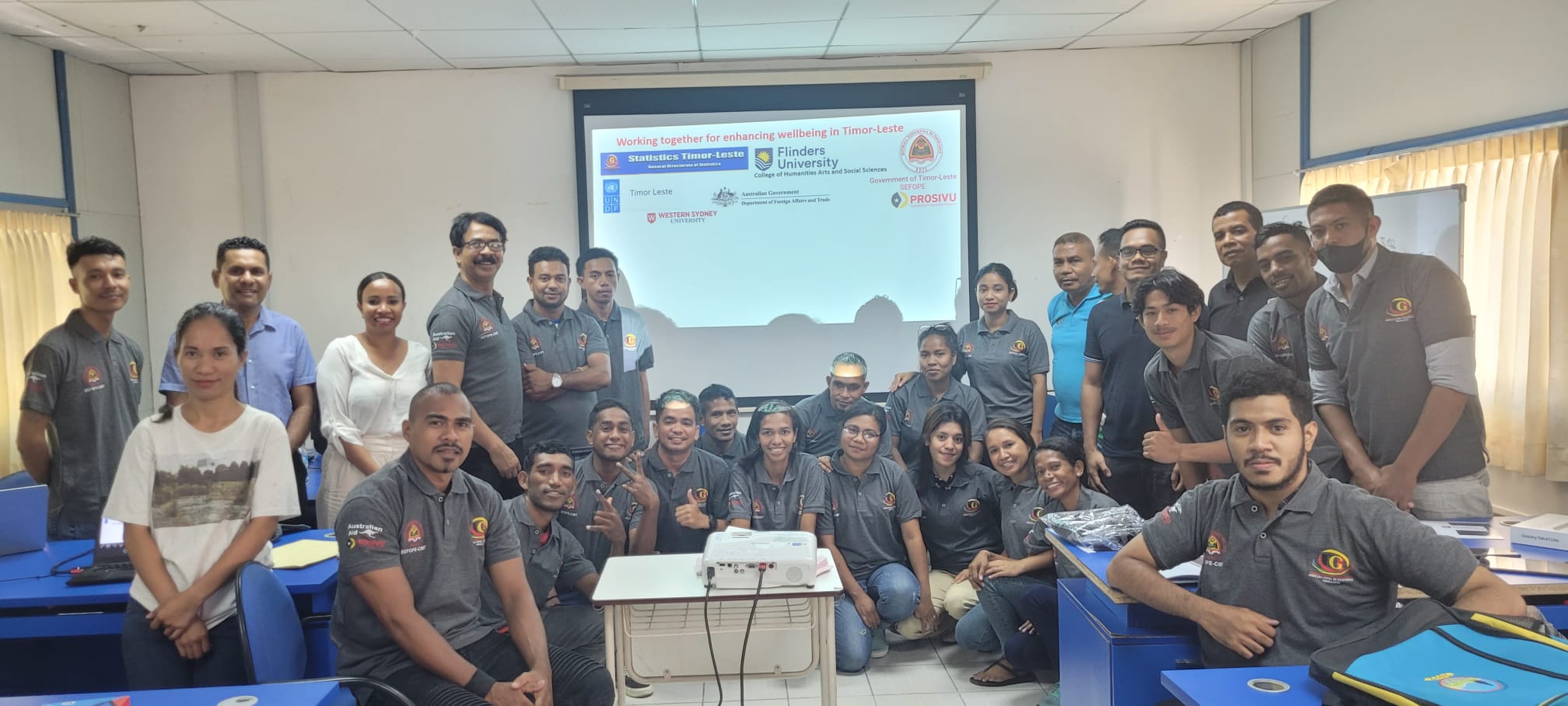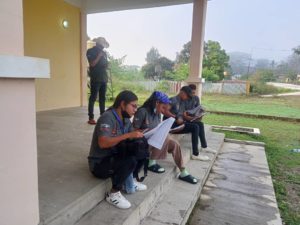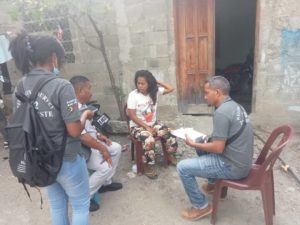
The impact of Australia’s Seasonal Workers Program on the wellbeing of returned Timorese workers and their families will be measured thanks to a Flinders University-led ARC Linkage project.
The nationwide survey, being undertaken in partnership with the Government of Timor-Leste, United Nations Development Program (UNDP), Department of Foreign Affairs and Trade (DFAT) Government of Australia, will include interviews with about 1200 returned migrant workers and their families in various districts across Timor. The General Directorate of Statistics and the Secretariat of State for Vocational Training and Employment’ (locally known as SEFOPE) will conduct the survey.

Associate Professor Udoy Saikia, who will lead the team of Flinders University researchers, recently organised a workshop for local Timorese researchers to equip them with the skills to conduct the fieldwork using Qualtrics online survey tool.
The workshop was inaugurated by Director General Mr Elias dos Santos Ferreira, who thanked Flinders University for its commitment to policy-driven research in Timor-Leste. In a separate meeting called by the Vice Minister of Finance, Timor-Leste Government, Mr Antonio Freitas also thanked Flinders’ collaborative research work with Timor-Leste Government for more than a decade.
The General Directorate of Statistics and ‘SEFOPE’ are the key Government organisations that will conduct the survey.

An initial workshop for designing the survey questionnaire was held at Flinders University in June this year. It was inaugurated by Timorese Ambassador to Australia, Her Excellency Ines Almeida. In a recent interview with interview with National Television (RTTL) broadcasted nationally, Mrs Almeida highlighted the importance of Flinders University’s research on the Seasonal Worker Program.
The English translation of the project also appears on the Timor-Leste Government website (translated by Timorese PhD at Flinders, Iriana Freitas De Jesus Ximenes).
The research will also measure the wellbeing of Timorese migrant workers who have returned after working under South Korea’s Employment Permit System.
The project aims to measure the impact of temporary labour migration on people’s wellbeing across various aspects of life. This will be used by researchers in Timor-Leste and elsewhere to evaluate the development impacts of such migration schemes.
The data will inform evidence-based policies to improve temporary labour migration schemes, meet urgent development priorities in Timor-Leste, and maximise the benefits of Australian aid-funded labour migration schemes.

